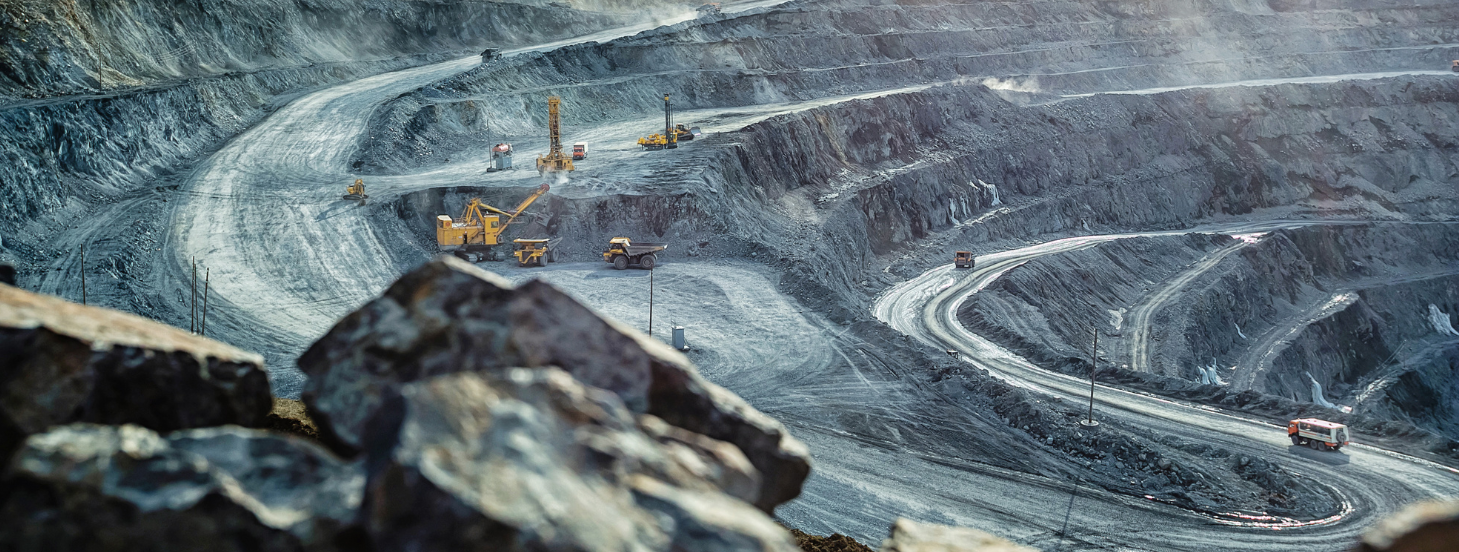
May 30, 2023 11:18:21 AM
Digging into the impact of Green Metal Mining
I recently attended the Private Wealth Forum at the Landmark Hotel in London for what was a very interesting day covering a whole range of topics, from global market projections to democratising alternative investments and what this means for the future of private wealth. Throughout the sessions there was, however, an ever-present theme: Energy Transition. From discussions around market trends and rises in thematic investing to the modernisation of Financial Planning, the global transition to green energy sources stood out as a core topic for distributors and manufacturers alike.
Energy Transition is a fiercely debated topic within ESG investing, though the focus seems to be on the environmental impact of transition and less around the social and political impacts.
It is undoubtably vital that for global temperature control projects to be a success, the energy transition from fossil fuels to renewable, carbon-neutral sources is critical. Though the consequences of this transition need to be challenged and monitored also. Moving away from Oil, Gas and Coal has put tremendous emphasis on battery power and the ability to store vast quantities of energy. This energy transition is epitomised in the car industry where Automotive lithium-ion battery demand increased by approximately 65% to 550 GWh in 2022, from about 330 GWh in 2021. Though a positive move for the environment, there must be a light shone on the impacts of the global race to securing reliable sources of green metals such as Lithium, Copper and Cobalt, without which the current transition is not possible.

So, what is the issue?
Well firstly, are Green Metals even Green? Reporting into the deforestation around the mining for these metals is staggering. A new WWF report, “Extracted Forests: Unearthing the role of mining-related deforestation as a driver of global deforestation”, sheds light on how the impacts of mining, currently the fourth largest driver of deforestation, is set to increase significantly.
So yes, the outcomes of using these metals for EV cars, for example, is certainly ‘greener’ than the alternative of fossil fuels, but the method of obtaining them is just as damaging to global ecosystems.
Away from the environment, Green Metals has a lot of work to do to ensure they are not risking the success of some SDGs to achieve others. Global Green Metal Supply Chains has been a discussion point for a while, but the overwhelming consensus seems to be carbon neutral at all costs. The negative impact that deforestation is having or the rise in modern slavery we have seen is clouding the energy transition and must be challenged. Surely the transition to a carbon neutral economy cannot come at any cost.
The key question here though is how governments get engaged in ensuring green metal supply chains are challenged and the answer lies in the geopolitical. China is beginning to exert OPEC-like dominance in the Green Energy sector with more than 80% of critical materials being processed there. This means the Energy Transition is not just threatened by the social and environmental impacts of moving to carbon-neutral, but also the political implications of clean energy supply chains being weaponised moving forward – as highlighted by US National Security Adviser, Jake Sullivan, in a recent article in Energy Intelligence.
The impact of this transition is becoming more apparent to the ‘Offtakers’ – large consumers of renewable electricity or zero emission fuels such as data centres and electric vehicles (UN Just Transition and Renewable Energy Report) – who fear their reliance on China for production simply isn’t sustainable.
What is being done to challenge this?
Well, with Lithium-ion the battery of choice for Tesla, Elon Musk’s actions are a good place to start. Musk has repeatedly stated that the rocketing prices of Lithium are a ‘fundamental chokehold’ for the electric vehicle industry. China’s political influence on the supply of the Green Metal is going to make it increasingly harder for Western business to have a consistent and reliable stream of fair priced Lithium and so the plan is to bring processing in-house.
Tesla are currently in talks with the Texan government to invest $375 million to build its own lithium processing refinery as well as Mining Company Albermarle also investing $1.3 billion for it’s own refinery operation in South Carolina. The efforts to increase the US’s current 1% control on global lithium refinery is well underway.
The Political incentive for companies and Western countries alike to search for alternatives from Chinese green metal hegemony presents opportunities for the cleansing of the supply chains. An unintended but welcome outcome. Moving refinery and processing to the US, as an example, means supply chains now conform to US employment and slavery laws and clean the process away from just the environmental benefits.
Ultimately, Green Metals are essential in the energy transition, but the negative side-effects of the move must be considered. At a macro level, geo-political tensions are going to see a push for localising supply chains, and this should lead to improving transparency. For investors, seeking Article 9 qualifying funds that are having a direct impact on global supply chains and green metal mining is an active approach to making a difference but identifying those that are targeting green metal supply as an issue is very challenging. Working with a manager that has the time, knowledge and resources to create an investment solution to match with investor objectives is essential.
Published by Tom Hind




